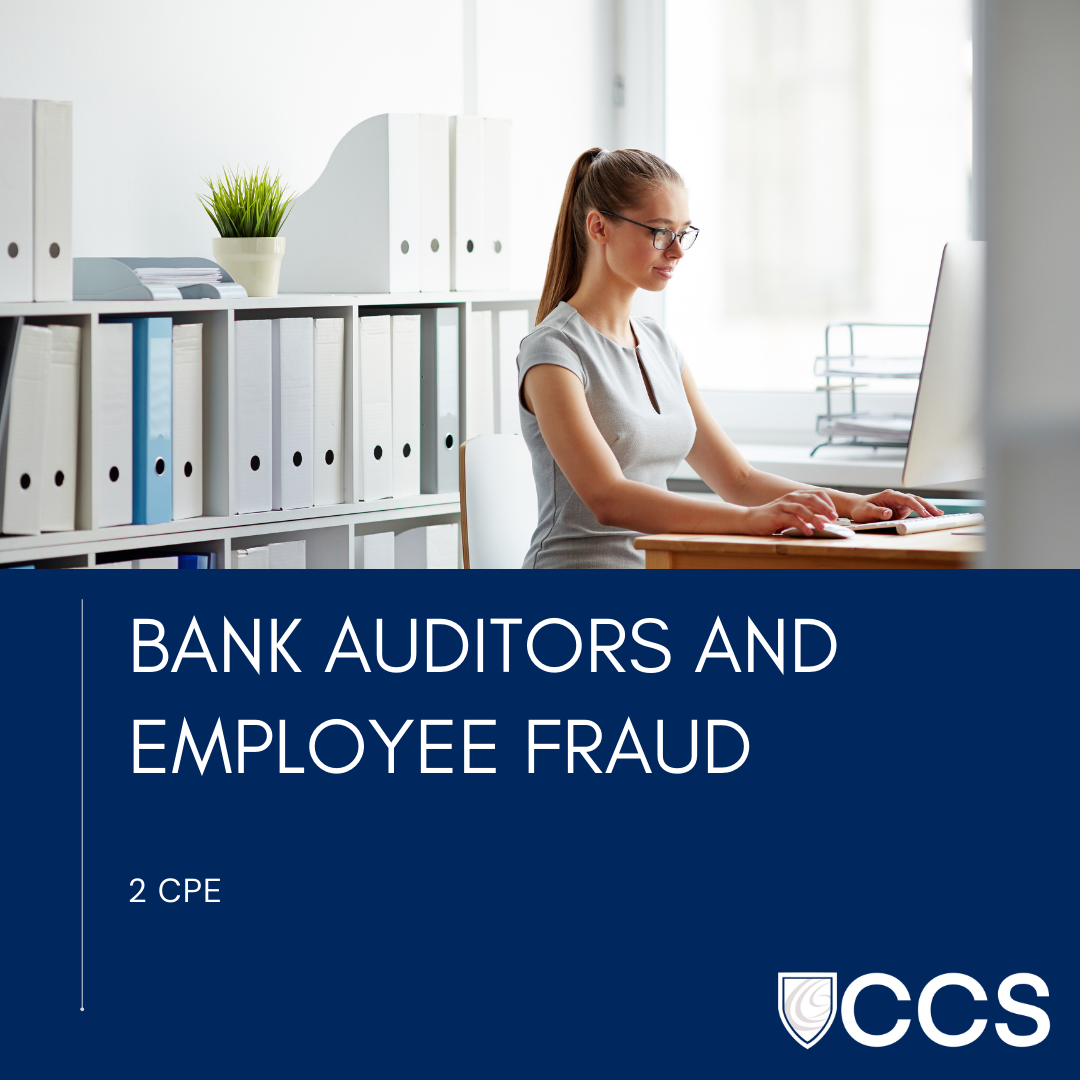Discover how to safeguard your banking organization from internal fraud with the Bank Auditors and Employee Fraud CPE Training Event. This two-hour program is uniquely designed for banking professionals, internal auditors, and compliance officers seeking to enhance their fraud detection and prevention skills. Gain actionable insights into identifying schemes, detecting red flags, and fortifying internal controls to protect financial institutions against growing fraud threats. Earn 2 Continuing Professional Education (CPE) credits while acquiring critical tools to combat occupational fraud effectively.
Why Attend?
Understand Common Fraud Schemes in Banking
Learn to recognize the most prevalent types of employee and insider fraud, from embezzlement and kickbacks to check fraud and vendor billing schemes.
Strengthen Fraud Prevention Measures
Acquire best practices for implementing anti-fraud controls and processes to bolster your organization’s defenses against malicious activities.
Detect Red Flags and Control Deficiencies
Master the skills needed to identify the warning signs of fraud and mitigate vulnerabilities within internal controls.
Earn 2 NASBA-Approved CPE Credits
Expand your expertise in fraud prevention and detection with industry-recognized certification credits.
What You’ll Learn
This training provides participants with practical knowledge to implement fraud detection strategies in their institutions effectively.
1. Fraud Detection Tools and Techniques
- Understand the factors driving employees to commit fraud.
- Explore the types of internal fraud common in today’s banking landscape.
2. Red Flags and Risk Assessment Techniques
- Learn how to spot behavioral and operational red flags indicating potential fraud.
- Use fraud risk assessments to proactively address vulnerabilities.
3. Designing Effective Anti-Fraud Controls
- Implement internal controls and delegation strategies to prevent fraud.
- Explore best practices in segregation of duties and accountability.
4. Fraud Detection and Investigation Best Practices
- Discover methods to conduct investigations, including data analytics and fraud audit techniques.
- Leverage a systematic approach to identify, report, and address incidents.
Key Workshop Highlights
This course will cover a range of integral topics for fraud prevention experts:
- Statistical trends and fraud in banking institutions.
- Insights into the fraud triangle—why employees commit fraud.
- Lessons from real-world fraud schemes.
- Building organization-wide systems for detecting and addressing fraud.
Event Details
- Format: Internet-based group training.
- Schedule: Offered every eight weeks on Mondays from 10:00 a.m. to 12:00 p.m. (Central Time).
- Duration: 2 Hours
- Cost: $140 per participant.
- Group Options: Private scheduling available for two or more attendees.
Who Should Attend?
This program is designed for professionals responsible for robust fraud prevention in their organizations:
- Internal Auditors: Strengthen your ability to assess internal fraud risks and investigate issues effectively.
- Compliance Professionals: Gain tools to implement effective fraud prevention frameworks.
- Audit Managers: Build a resilient control environment to protect your institution from financial integrity risks.
The Importance of Fraud Prevention in Banking
The banking industry faces an increasing threat from occupational fraud, with dishonest insiders devising new schemes driven by advancing technologies. Internal fraud presents significant risks to banks, from financial losses to reputation damage. Developing a robust fraud program is essential to mitigating these risks.
The Bank Auditors and Employee Fraud CPE Training Event equips auditors, compliance officers, and banking professionals with the tools needed to combat fraud effectively. From examining red flags to enhancing internal controls, this program offers comprehensive strategies to strengthen organizational resilience against fraud.
Register Today
Take the lead in building a fraud-resistant organization with the Bank Auditors and Employee Fraud CPE Training Event. Earn 2 NASBA-Approved CPE credits while mastering skills in fraud detection and prevention tailored to the unique challenges of the banking industry.
Sign up now to protect your institution and build a culture of integrity!
Bank Auditors and Employee Fraud
Offered every eight weeks on Mondays at 10:00 a.m. to 12:00 noon Central Time in two CPE-Credit event.
We can schedule private events on your timetable for two or more attendees.
NASBA Program Disclosure
Program Level of Understanding: Basic
Prerequisites: None
Advance Preparation: None
Delivery Format: Group Internet Based
NASBA Field(s) of Study: Auditing
CPE Credits: 2, based on 50 minutes of instruction per hour



